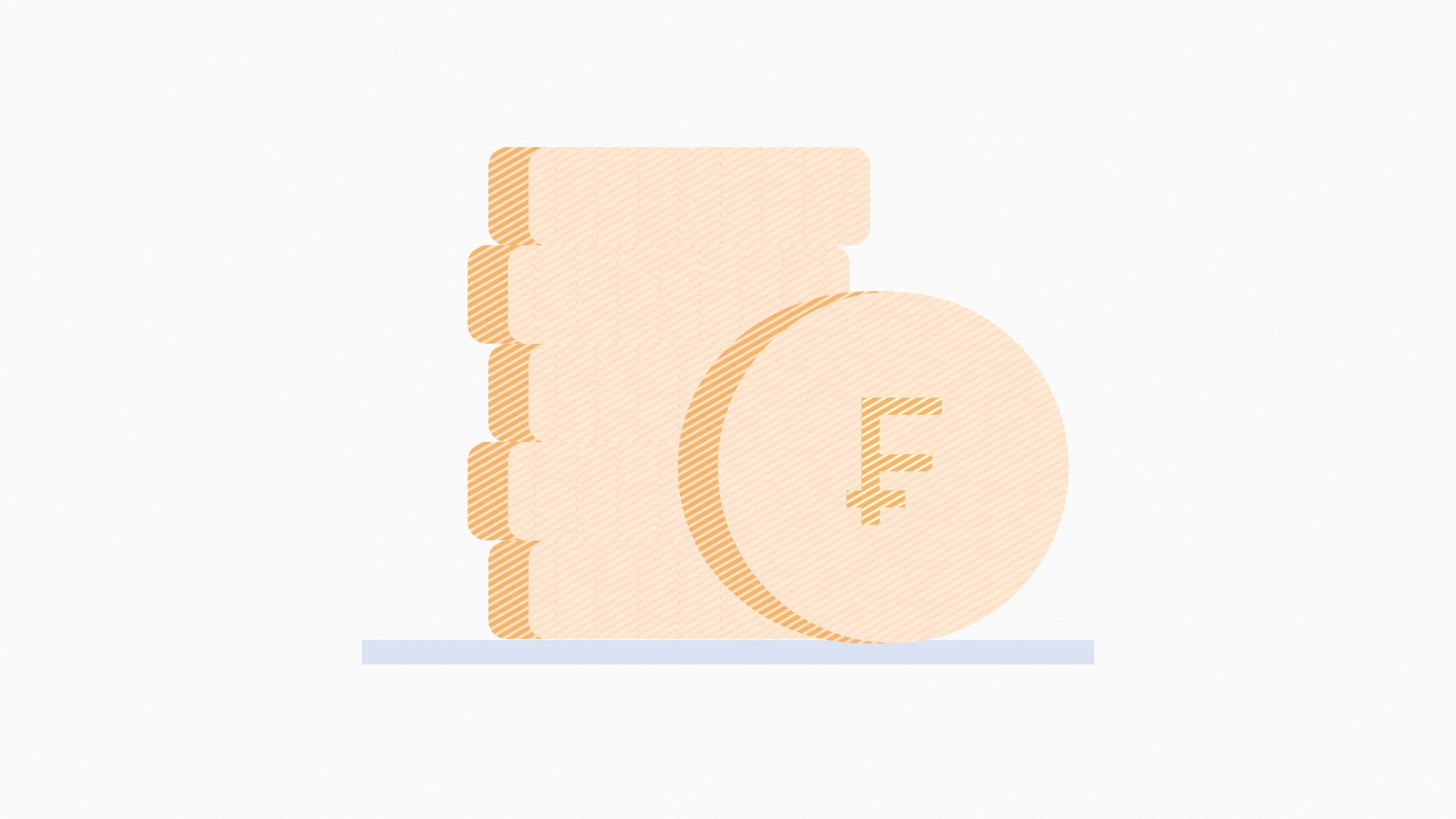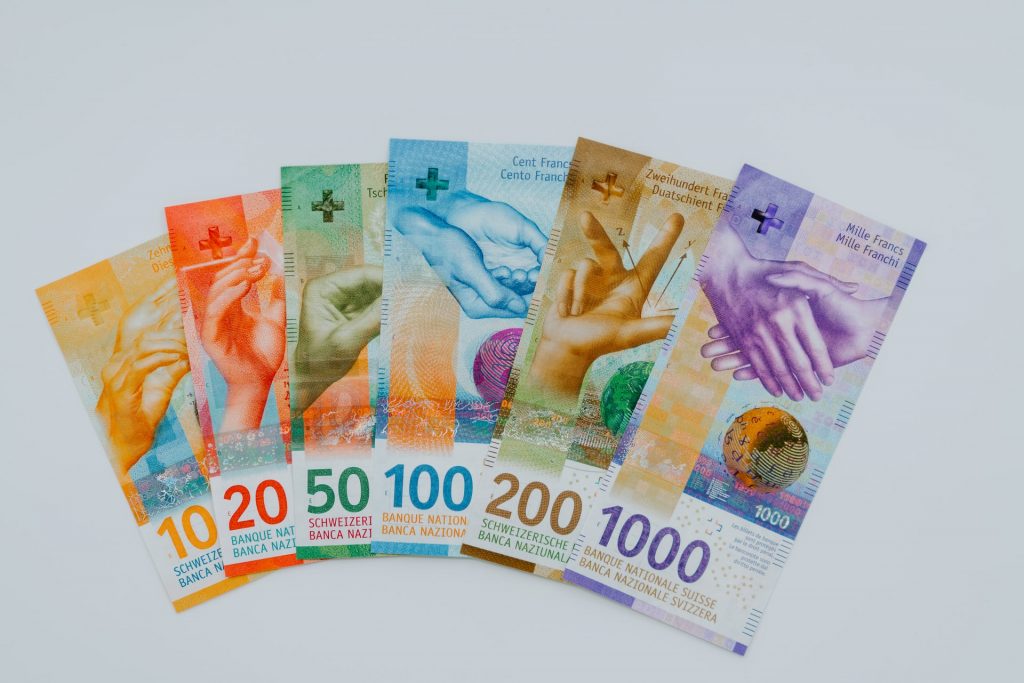
Swiss Franc: The national currency of Switzerland and Liechtenstein.
It is also a legal tender in the Italian exclave of Campione d’Italia.
Key takeaways
- The Swiss franc is the national currency of Switzerland and Liechtenstein. It is also a legal tender in Campione d’Italia.
- The Swiss National Bank is responsible for the issue, circulation, and regulation of the Swiss franc.
- The Swiss Franc is considered a safe-haven currency due to Switzerland’s political neutrality and strong economy, which results in the stability of the currency value.

Source: Studying in Switzerland
What is the Swiss Franc?
The Swiss franc, also known as “CHF” is the official currency of Switzerland and the Principality of Liechtenstein. It is a widely traded currency that is known for its stability and strong reputation in the international financial markets.
The symbol for the Swiss franc is “CHF,” which stands for Confoederatio Helvetica Franc. “Confoederatio Helvetica” is a Latin name for the Swiss Confederation. The Swiss National Bank (SNB) is the central bank responsible for issuing and regulating the Swiss franc.
The Swiss franc is known as a safe-haven currency because Switzerland has a long-standing reputation for political stability, a strong economy, and a good fiscal policy, particularly during times when the global economy is uncertain. Switzerland also has a policy of neutrality in international conflicts and this has increased the Swiss franc’s appeal as a safe-haven asset.
The exchange rate of the Swiss franc can fluctuate against other currencies, and it is often considered a benchmark for assessing the strength of other currencies. While Switzerland officially adopted the Swiss franc as its currency in the 19th century, the Principality of Liechtenstein uses the Swiss franc as its official currency because of its close economic ties with Switzerland.
History of the Swiss Franc
In the Middle Ages, Switzerland was a combination of independent regions, each issuing its own coins. Various currencies were in circulation, including those issued by cities, abbeys, and regional rulers. These diverse coins were used for trade within and beyond the Swiss borders. In the late 18th century, the French Revolution and the expansion of Napoleon’s French Empire led to the creation of the Helvetic Republic (1798-1803), which aimed to centralize Switzerland’s administration. During this time, a unified currency called the “Frank” was introduced, and it was a precursor to the Swiss Franc.
In 1848, Switzerland adopted a new federal constitution, which established the Swiss Confederation. The constitution gave the government the power to issue a single currency for the entire country. In 1850, the Swiss Federal Constitution and Monetary Act paved the way for the creation of the Swiss Franc as the official currency of Switzerland.
The Swiss Franc was tied to both gold and silver standards In the 19th century and early 20th century. However, Switzerland later adopted a gold standard and pegged the Franc to gold, which contributed to its stability during this period. The Swiss Franc went through significant changes in the 20th century, including abandoning the gold standard in 1936 and adopting a flexible exchange rate system. In 1971, Switzerland abandoned the Bretton Woods system, which pegged currencies to the US dollar, and allowed the Franc to float freely on the foreign exchange market.
Switzerland’s reputation for political stability, strong financial institutions, and neutrality in international conflicts has contributed to the Swiss Franc’s status as a safe-haven currency. During times of global economic uncertainty, investors often seek refuge in the Swiss Franc.
Current Swiss Franc Notes
- 10 francs
- 20 francs
- 50 francs
- 100 francs
- 200 francs
- 1,000 francs
The Swiss franc also has coins issued as 5 centimes, 10 centimes, 20 centimes, ½ francs, 1 francs, 2 francs, and 5 francs. Although they are still legal tender, they are no longer in circulation.
Some Facts About The Swiss Franc
- Swiss Franc banknotes typically feature four languages: German, French, Italian, and Romansh, reflecting the country’s linguistic diversity.
- The Swiss Franc is known for having relatively high-denomination banknotes. The 1,000 Swiss Franc note is one of the highest-denomination banknotes in regular circulation globally.
- The Swiss Franc is considered a safe-haven currency due to Switzerland’s political neutrality, strong economy, and stable financial system. It often appreciates during times of global economic uncertainty.
- In the past, the Swiss Franc was pegged to various currencies, including the Euro. However, the Swiss National Bank (SNB) removed the peg to the Euro in 2015, causing a significant appreciation of the Franc.
- Despite its proximity to Eurozone countries, Switzerland has not adopted the Euro as its official currency. The Swiss Franc remains the sole legal tender in the country.
- Switzerland periodically releases new banknote series with updated security features and designs. It is currently using the ninth banknote series.
- While cash is still widely used in Switzerland, the country is also known for its advanced and efficient electronic payment systems.
- The Swiss National Bank holds substantial foreign exchange reserves, and it is known for its practice of diversifying its currency holdings.
Conclusion
The Swiss Franc (CHF) is a distinctive and respected currency because of its known stability, which has given it a safe-haven status. Switzerland’s commitment to political neutrality and a strong economy gives it an edge. The Swiss franc remains a symbol of the country’s financial strength and cultural diversity. Even with its relatively high denominations and a history of currency pegs, the Swiss Franc remains an internationally recognized currency.
Start building wealth on Cowrywise

ALSO READ
